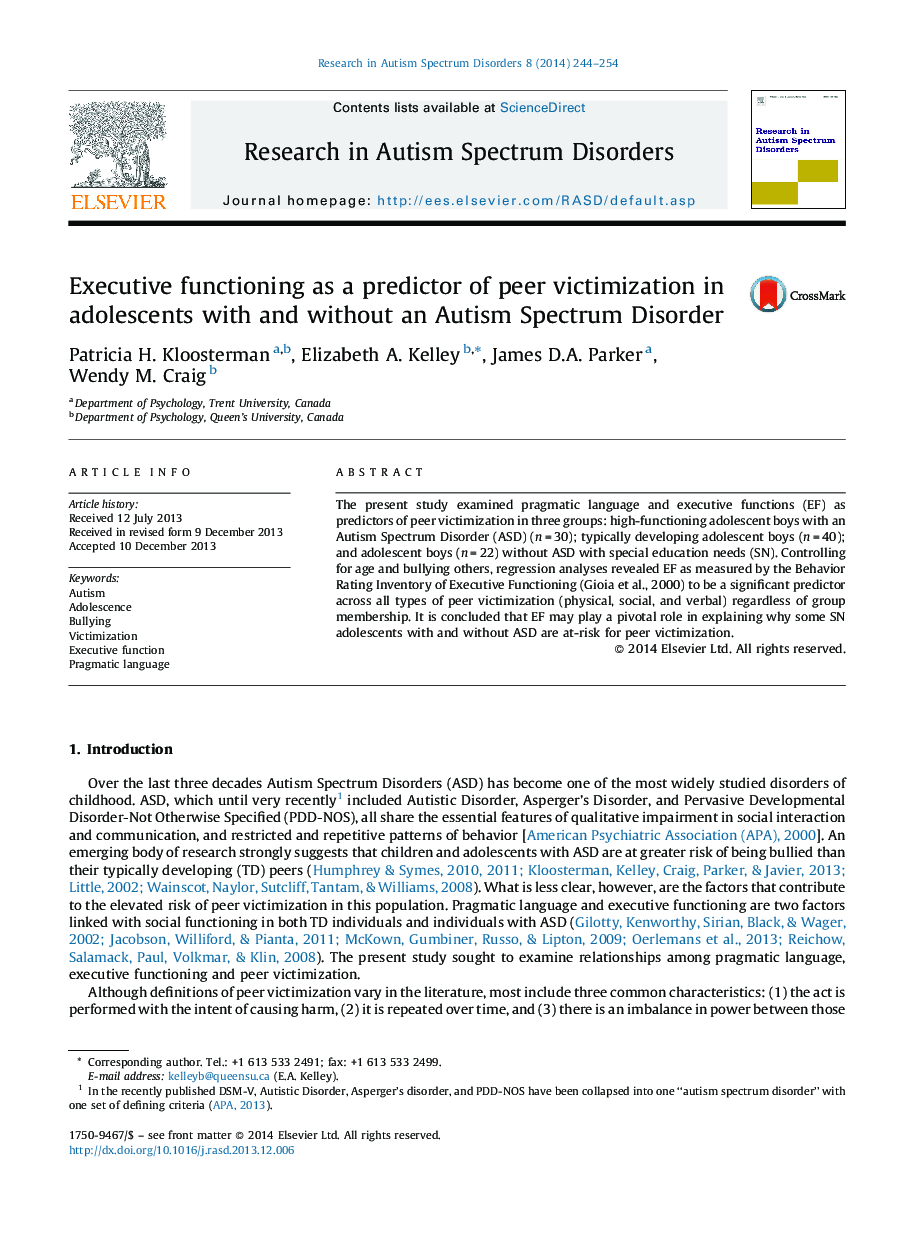| Article ID | Journal | Published Year | Pages | File Type |
|---|---|---|---|---|
| 10317151 | Research in Autism Spectrum Disorders | 2014 | 11 Pages |
Abstract
The present study examined pragmatic language and executive functions (EF) as predictors of peer victimization in three groups: high-functioning adolescent boys with an Autism Spectrum Disorder (ASD) (n = 30); typically developing adolescent boys (n = 40); and adolescent boys (n = 22) without ASD with special education needs (SN). Controlling for age and bullying others, regression analyses revealed EF as measured by the Behavior Rating Inventory of Executive Functioning (Gioia et al., 2000) to be a significant predictor across all types of peer victimization (physical, social, and verbal) regardless of group membership. It is concluded that EF may play a pivotal role in explaining why some SN adolescents with and without ASD are at-risk for peer victimization.
Related Topics
Life Sciences
Neuroscience
Behavioral Neuroscience
Authors
Patricia H. Kloosterman, Elizabeth A. Kelley, James D.A. Parker, Wendy M. Craig,
